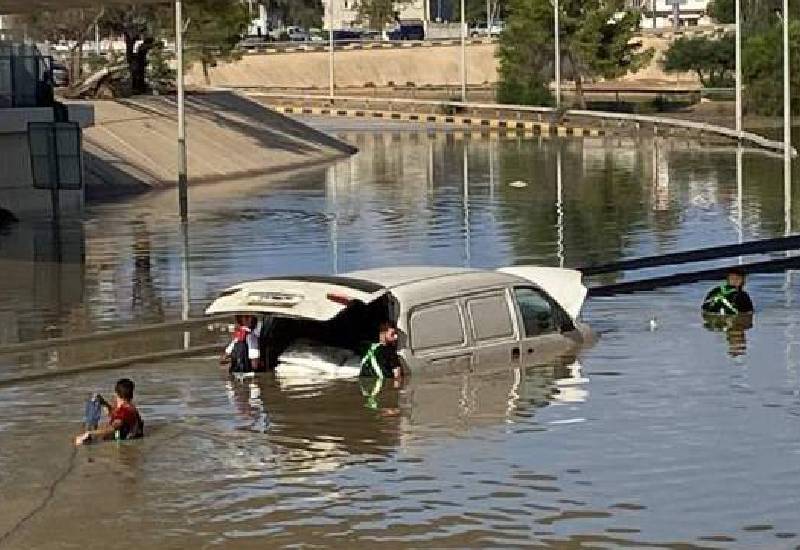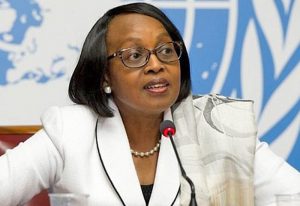Emergency workers uncovered more than 1,500 bodies in the wreckage of Libya’s eastern city of Derna on Tuesday, and it was feared the toll could surpass 5,000 after floodwaters smashed through dams and washed away entire neighbourhoods of the city.
The startling death and devastation wreaked by Mediterranean storm Daniel pointed to the storm’s intensity, but also the vulnerability of a nation torn apart by chaos for more than a decade.
The country is divided by rival governments, one in the east, the other in the west, and the result has been neglect of infrastructure in many areas.
Outside help was only just starting to reach Derna on Tuesday, more than 36 hours after the disaster struck. The floods damaged or destroyed many access roads to the coastal city of some 89,000.
Footage showed dozens of bodies covered by blankets in the yard of one hospital. Another image showed a mass grave piled with bodies. More than 1,500 corpses were collected, and half of them had been buried as of Tuesday evening, the health minister for eastern Libya said.
At least one official put the death toll at more than 5,000. The state-run news agency quoted Mohammed Abu-Lamousha, a spokesman for the East Libya interior ministry, as saying that more than 5,300 people had died in Derna alone. Derna’s ambulance authority said earlier Tuesday that 2,300 had died.
But the toll is likely to be higher, said Tamer Ramadan, Libya envoy for the International Federation of Red Cross and Red Crescent Societies. He told a U.N. briefing in Geneva via videoconference from Tunisia that at least 10,000 people were still missing. He said later Tuesday that more than 40,000 people have been displaced.
The situation in Libya is “as devastating as the situation in Morocco,” Ramadan said, referring to the deadly earthquake that hit near the city of Marrakesh on Friday night.
U.N. Secretary-General Antonio Guterres conveyed his solidarity with the Libyan people and said the United Nations “is working with local, national and international partners to get urgently needed humanitarian assistance to those in affected areas,” U.N. spokesman Stephane Dujarric said.
The destruction came to Derna and other parts of eastern Libya on Sunday night. As the storm pounded the coast, Derna residents said they heard loud explosions and realized that dams outside the city had collapsed. Flash floods were unleashed down Wadi Derna, a river running from the mountains through the city and into the sea.
The wall of water “erased everything in its way,” said one resident, Ahmed Abdalla.
Videos posted online by residents showed large swaths of mud and wreckage where the raging waters had swept away neighbourhoods on both banks of the river. Multi-story apartment buildings that once were well back from the river had facades ripped away and concrete floors collapsed. Cars lifted by the flood were left dumped on top of each other.
Libya’s National Meteorological Center said Tuesday it issued early warnings for Storm Daniel, an “extreme weather event,” 72 hours before its occurrence, and notified all governmental authorities by e-mails and through media … “urging them to take preventive measures.” It said that Bayda recorded a record 414.1 millimetres (16.3 inches) of rain from Sunday to Monday.
On Tuesday, local emergency responders, including troops, government workers, volunteers and residents dug through rubble looking for the dead. They also used inflatable boats to retrieve bodies from the water.
Many bodies were believed trapped under rubble or had been washed out into the Mediterranean Sea, said eastern Libya’s health minister, Othman Abduljaleel.
“We were stunned by the amount of destruction…the tragedy is very significant, and beyond the capacity of Derna and the government,” Abduljaleel told The Associated Press on the phone from Derna.
Source: AP




